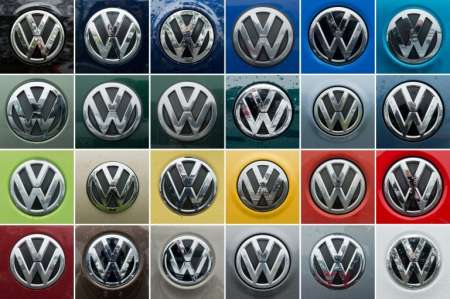-
Tips for becoming a good boxer - November 6, 2020
-
7 expert tips for making your hens night a memorable one - November 6, 2020
-
5 reasons to host your Christmas party on a cruise boat - November 6, 2020
-
What to do when you’re charged with a crime - November 6, 2020
-
Should you get one or multiple dogs? Here’s all you need to know - November 3, 2020
-
A Guide: How to Build Your Very Own Magic Mirror - February 14, 2019
-
Our Top Inspirational Baseball Stars - November 24, 2018
-
Five Tech Tools That Will Help You Turn Your Blog into a Business - November 24, 2018
-
How to Indulge on Vacation without Expanding Your Waist - November 9, 2018
-
5 Strategies for Businesses to Appeal to Today’s Increasingly Mobile-Crazed Customers - November 9, 2018
Volkswagen’s U.S. CEO Michael Horn To Testify Before Congressional Committee
Horn said he knew about possible emissions non-compliance in the spring of 2014. He said he was told Volkswagen engineers were working with regulators to solve the problem.
Advertisement
The company and its executives are under fire in the wake of revelations that Volkswagen installed devices and software created to fool fuel efficiency and pollution emissions tests in about 11 million diesel vehicles.
Horn said the company told regulators only on September 3 that it was using defeat devices and that before then he had no understanding of what they were.
He said in an interview published Wednesday by the Frankfurter Allgemeine Zeitung that engine development is “a complex process” and that these were tasks in which “a director is not directly involved”. He said he couldn’t answer any further questions about who was responsible, or how widely known the deception was within the company, until that investigation is concluded.
The Volkswagen Group of America chief said the vast majority of the roughly 482,000 diesel passenger cars covered by the allegations could not be fixed until at least 2017 because the solution requires the installation of new equipment.
The result is the cars that were sold as “clean diesel” vehicles actually exceed standards for nitrogen oxide emissions by up to 40 times.
A Volkswagen spokesman in the US said he didn’t know what the device did, but the company said that such devices sense engine performance, road speed “and any other parameter for activating, modulating, delaying or deactivating” emissions controls.
According to an advance copy of Horn’s prepared remarks, VW plans to withdraw applications seeking US emissions certifications for its 2016 model Jettas, Golfs, Passats and Beetles with diesel engines. The affair has rocked Europe’s biggest vehicle maker, forcing its former chief executive to resign under pressure, and raises broader questions about the auto industry’s compliance with emissions regulations.
The VW scandal came to light when researchers from the worldwide Council on Clean Transportation and West Virginia University performed all kinds of tests on VW vehicles, discovering that when the vehicles were on the road, they polluted substantially more than when they were being tested for pollution emissions.
Rep. Fred Upton, R-Mich., said at a hearing of the House Committee on Energy and Commerce’s Subcommittee on Oversight and Investigation that the company betrayed the trust of regulators, dealers and the public.
VW models with the emissions-cheating software date back to the 2009 model year. The fixes may take five to 10 hours per vehicle for dealership mechanics to complete, he said.
The company says a recall of cars with the suspect software could start in Germany in January and last until the end of next year.
The company, controlled by the Piech-Porsche clan, is not drawing on outside restructuring experts to help with its plans for a new company structure, one source close to the board said. EPA, CARB, the U.S. Department of Justice, State Attorneys General, as well as other authorities, are fulfilling their duties to investigate this matter.
Advertisement
The group has set aside €6.5 billion in the third quarter over the affair, but that was only the estimated sum to cover repairs of affected vehicles.





























